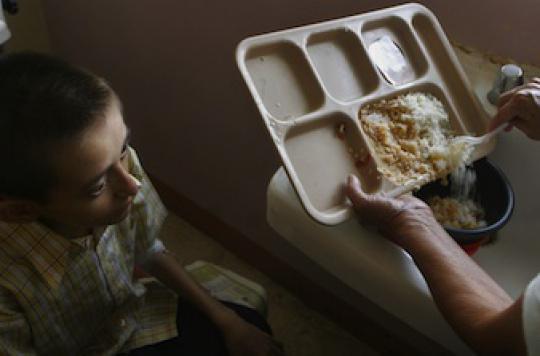Fifteen years after the report denouncing malnutrition in the hospital, the Academy of Pharmacy denounces a still insufficient care. With complications for the patients.

When we speak of undernutrition, we mean “developing countries”, “poverty”, “famine”… However, undernutrition also affects developed countries like France. This lasting imbalance between energy intake from food and expenditure affects patients suffering from chronic pathologies, the elderly, but also children and adolescents. In France, it is in health establishments that undernutrition is the most important.
Between 30 and 60% of hospitalized patients are undernourished, underlines the Academy of Pharmacy which is holding a session on this major public health problem this Wednesday. The institution recalls that undernutrition “can kill more than the disease itself”.
In children, malnutrition affects 15 to 30% of patients, and more than 65% of elderly people hospitalized for long stays suffer from it. However, undernutrition during hospitalization or its aggravation leads to an increase in complications, the average length of hospitalization and morbidity.
Increased risk of complications
“A malnourished patient has 4 times more risk of developing an infectious complication than a normal-nutrient patient”, indicates the Academy of Pharmacy. Among cancer patients, nearly 50% are malnourished, and between 10 and 20% of them die from the consequences of their malnutrition.
In the case of cancer, “diet is a key factor in the care process”, underlines the ARC Foundation. Patients are often malnourished and exhausted even before starting their treatment, because cancer weakens the body for the benefit of tumor growth. Weight loss aggravated by anti-tumor treatments, which cause therapeutic stress promoting additional energy expenditure. However, undernutrition reduces tolerance to treatments (chemotherapy and radiotherapy) and their benefits.
Improve screening
“Undernutrition increases the cost of hospitalization by more than 1,000 euros”, estimates the Academy. Also she denounces “significant additional hospital costs that could be avoided” by no longer considering the nutrition and nutritional status of patients as a secondary element of care. She points to the lack of screening and diagnosis, especially on admission of patients, resulting in a lack of awareness of the patient’s needs. And to cite the example of “meals which are not adapted to the taste and appetite of those for whom they are intended, who, in fact, do not consume them. “
However, in 2002, a first step was taken with the creation of Food and Nutrition Liaison Committees (CLANs) in health establishments. Their mission is to improve the catering and the nutritional quality of the dishes served to patients. But it is clear that the question remains a major public health issue.
.















